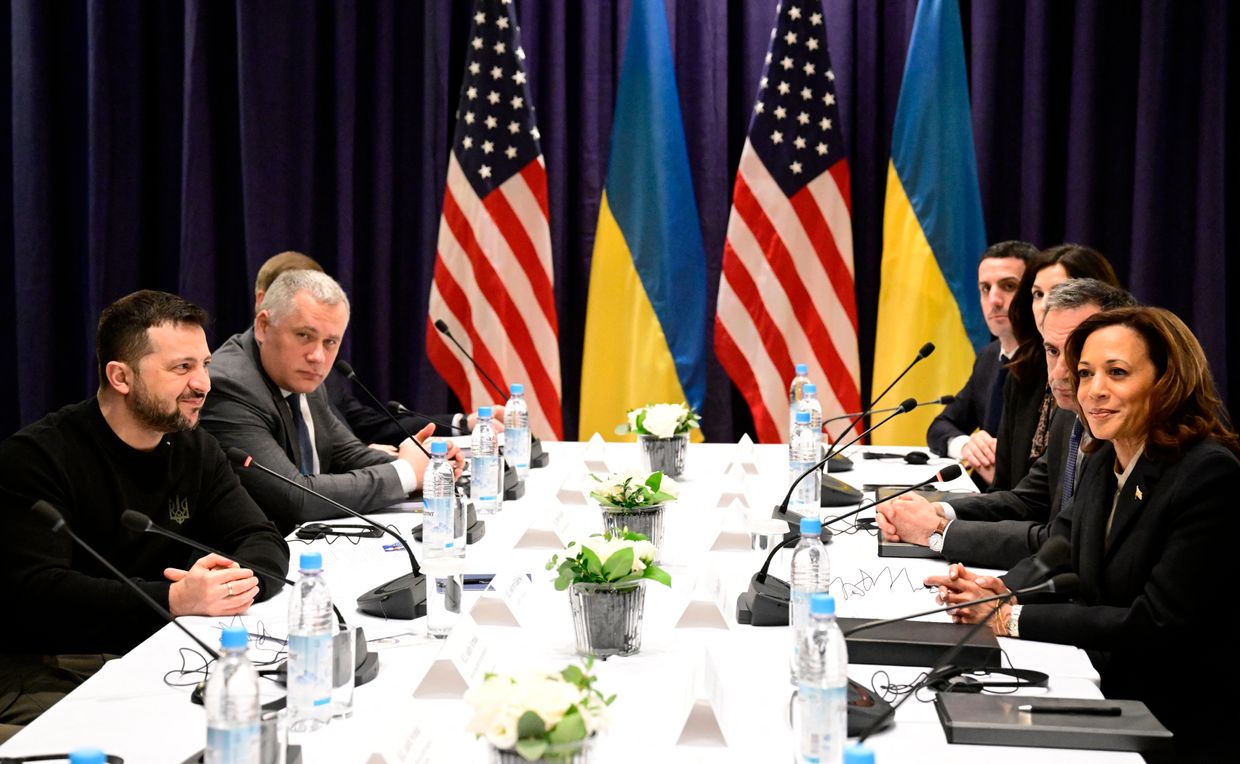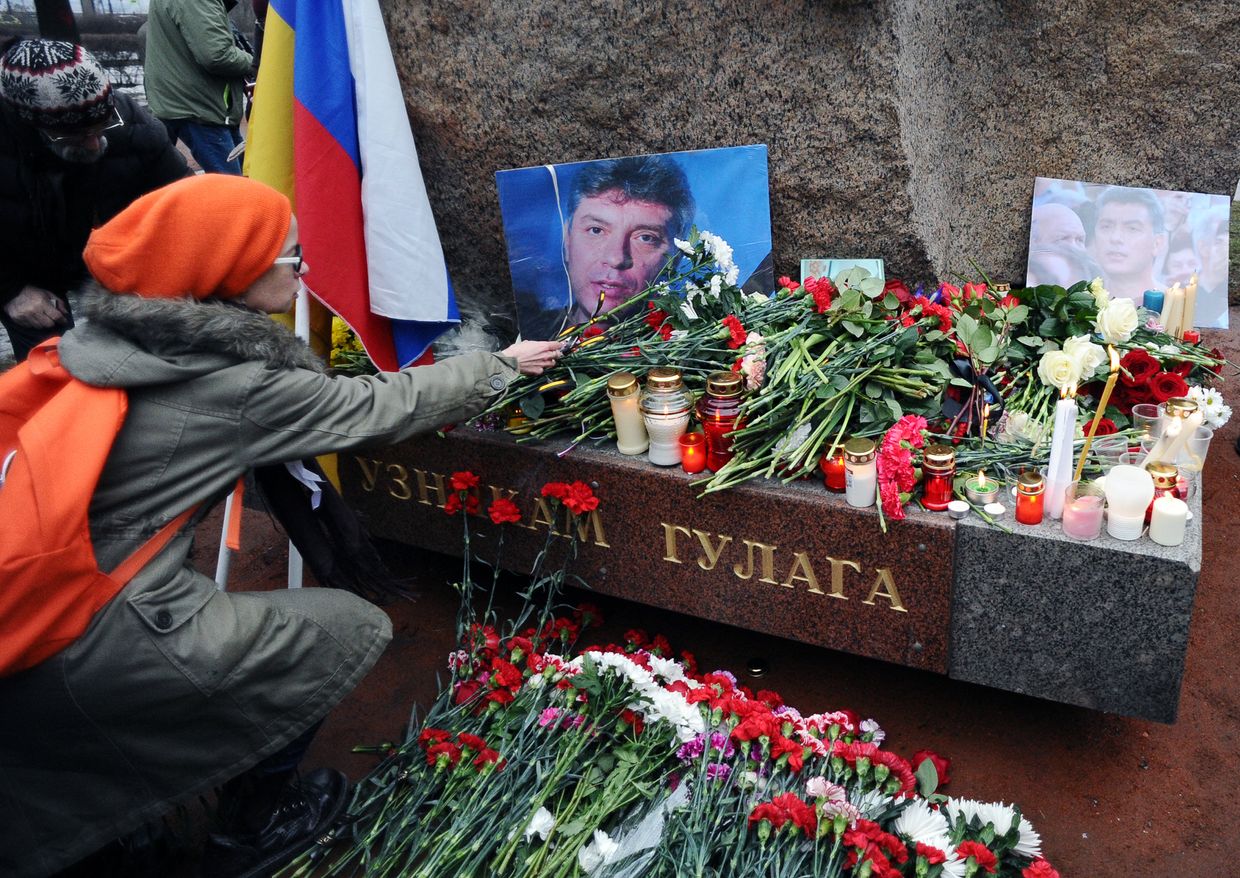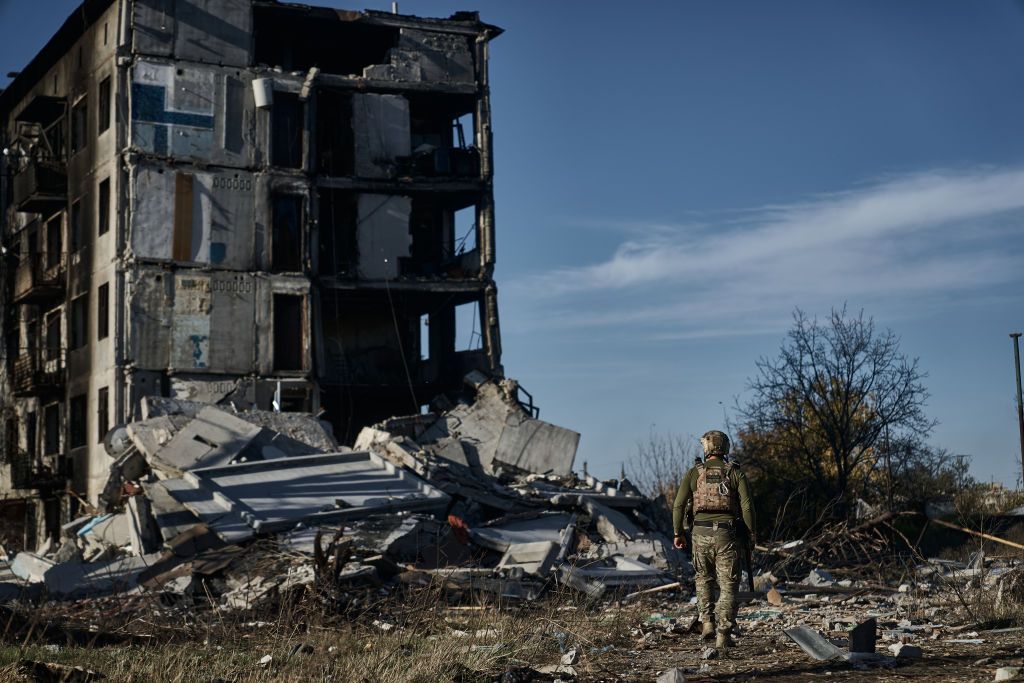Opinion: Will Europe ever get serious about defense?

MUNICH – “Words, words, just words,” sighed one VIP attendee at the Munich Security Conference as representatives of three European Union member states discussed security cooperation. “China will get the message: ‘No need to worry about us here,’” said another about the signals being sent from Bavaria.
A lugubrious mood hung over the entire gathering of policymakers and security experts this past weekend. Leaders seem overwhelmed by the confluence of crises and deepening global challenges; many simply appeared exhausted. The news about Ukraine losing the city of Avdiivka certainly did not help. Ukraine’s ammunition supplies are running low, and no one knows if U.S. President Joe Biden will be able to get another aid package through Congress before the end of his current term. Meanwhile, the death of the imprisoned Russian opposition leader Alexei Navalny further underscored the brutality of Vladimir Putin’s dictatorship in Russia.
But the biggest chill came from the looming prospect of a second Donald Trump presidency, which would weaken NATO and increase tensions with China. The timing could not be worse: Russia may be trying to send nuclear weapons into space, and China’s defense budget has reached record highs. On the conference stage, the dialogue was mostly about reassuring European allies (as it is every year). In the corridors, however, U.S. participants warned their friends that they should start preparing to take care of themselves.
Unfortunately, Europe’s governments are proving unequal to the task – and this despite a large land war on the continent, the threat of a regional war in the Middle East, increasing fragility in the Western Balkans, and hybrid warfare reaching deep into European societies. “Without security, everything else is nothing,” said German Chancellor Olaf Scholz. How right he is.
The situation looked much better just one year ago. Inspired by President Volodymyr Zelensky and his fellow Ukrainians’ show of courage, Western democracies had united in support behind the Ukrainians as they entered the second year of full-on war. Military and financial aid had taken off, and the transatlantic partnership was as strong as it had been in many years. There was great hope for the expected summer offensive that the Ukrainian military was going to launch with Western support.
Now, the mood is bleak, and Europe’s strategic challenges are multiplying. It must bolster its economic security in the face of a more assertive China, improve relations with other countries beyond NATO, and build up its own defense. European leaders urgently need a plan to meet these goals.
Yet while European Commission officials and the leaders of smaller EU member states (such as the Baltics) came to Munich with a strong sense of purpose, many others were missing in action. Notably, French President Emmanuel Macron and Poland’s newly elected prime minister, Donald Tusk, both stayed home. Scholz could have invited them to a Weimar Triangle meeting among three of the EU’s largest defense spenders and supporters of Ukraine. That might have sent a powerful message.
Germany itself has come a long way. In addition to establishing a 100 billion euro ($108 billion) fund to comply with the NATO defense-spending target (2% of GDP), it is also Europe’s largest source of aid to Ukraine, and the first country to send a permanent combat brigade to Lithuania to strengthen NATO’s eastern flank.
These moves form a strong foundation on which to build – if there is effective leadership. Suppose a few EU leaders had come to Munich with a coordinated message about how to move ahead with defense cooperation, or even an endorsement of European Commission President Ursula von der Leyen’s proposal to create a defense commissioner position. That could have helped change the tone ahead of the European Parliament elections in June. Of course, as the leader who will top the European Peoples’ Party (EPP) list in the elections, von der Leyen herself also could have played a larger and more public role in setting stronger European defense goals.
This overall lack of leadership and coordination almost buried some recent good news. Just ahead of the Munich conference, Ukraine signed new long-term support agreements with the United Kingdom, Germany, and France. But this was another missed opportunity. Why not make a bigger show of the three largest European countries reaffirming their commitments to Ukraine? And why not use the occasion to develop a concrete plan to meet Ukraine’s dire need for ammunition and to cut off Russian procurement of equipment for its troops?
Munich could have been where European leaders stood up to say: “If others step away, we will step up.” Instead, the message one heard most often from Europeans and Americans alike was, “Democracy takes time.” While true in principle, Ukraine does not have time for such fecklessness. Security, freedom, democracy, rule of law, and human dignity are all on the line in Ukraine. As Zelensky put it, “Dictators do not go on vacation.”
All told, European leaders missed yet another opportunity to show how they plan to strengthen NATO’s European pillar, establish greater deterrence on the continent, stabilize their neighborhood, and develop a robust European defense industry – that is, how to see to their own security.
Yet Europe is facing a determined aggressor who will surely continue his provocations. Only if the West effectively backs Ukraine will Putin understand that he is doomed to fail. The situation demands short-term action and long-term engagement – all of which calls for a different leadership mindset. Most European citizens would be receptive to a change in tone before the European elections. After all, a recent Eupinions poll shows 87% support for stronger security and defense cooperation.
The next opportunity for European leaders to show that they are serious will be at NATO’s summit in July. If Europe does not pull itself together on defense, 2024 may be remembered as the year when Ukraine was abandoned, and the transatlantic alliance shattered, with dire consequences for Europe and the world.
Editor’s Note: Copyright, Project Syndicate. This article was published by Project Syndicate on Feb. 20, 2024, and has been republished by the Kyiv Independent with permission.The opinions expressed in the op-ed section are those of the authors and do not purport to reflect the views of the Kyiv Independent.













